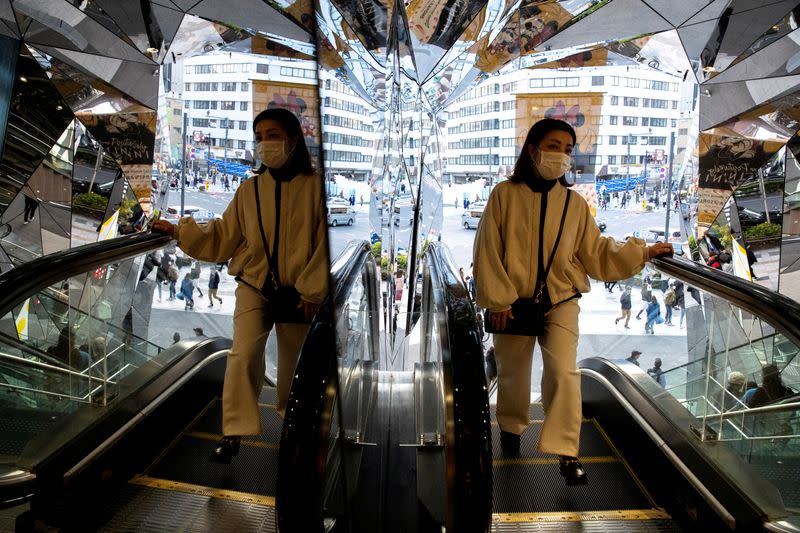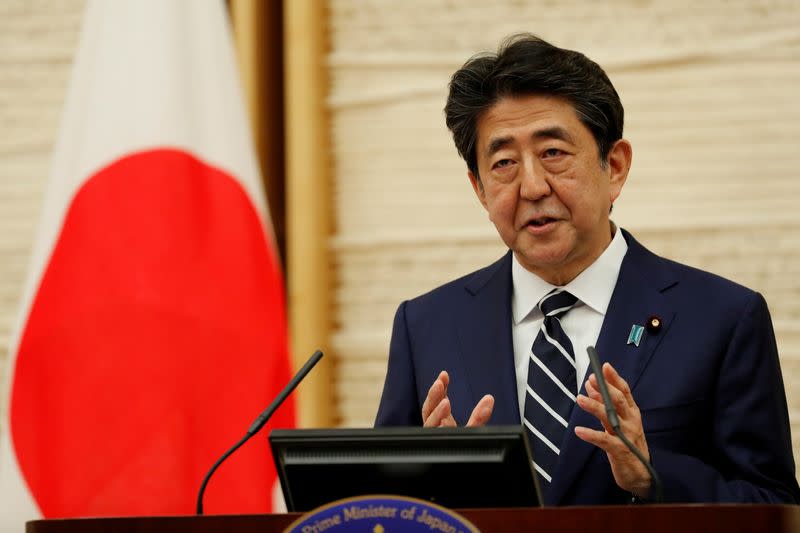Japan's Abe vows fiscal reform after economy overcomes virus hit
By Leika Kihara
TOKYO (Reuters) - Japan will resume fiscal reform once the economy overcomes the hit from the coronavirus pandemic, Prime Minister Shinzo Abe said, brushing aside calls by some lawmakers to keep spending permanently with money printed by the central bank.
The government has pledged to spend a combined $2.2 trillion in two stimulus packages to cushion the economic blow from the pandemic, while the central bank has pledged to buy unlimited amounts of bonds to cap borrowing costs at zero.
"Japan's economy is battling a crisis, so the priority now is to use all available means to put it on a recovery path," Abe told parliament on Monday, when asked how Japan would reconcile the huge spending with the need to fix its tattered finances.
"By achieving economic growth, Japan can restore fiscal health. But that doesn't mean Japan can endlessly increase debt," he said, adding the government will resume efforts to improve the country's fiscal health once the economy stabilises.
Abe's remarks come amid calls from some lawmakers for Japan to prop up the economy via unlimited money-printing to finance government spending - a concept dubbed "Modern Monetary Theory" (MMT) that has been floated by some U.S. academics.
Japan's economy slipped into recession and is seen suffering an annualised contraction of over 20% in April-June, as lockdown measures to contain the pandemic hit consumption and businesses.
Analysts say Japan's huge public debt - already the biggest among major industrialised nations - constrains its ability to ramp up fiscal spending to spur growth.
S&P Global Ratings last week lowered its outlook on Japan's sovereign debt rating to stable from positive, citing increased uncertainty over the country's fiscal health as it boosts spending to combat the health crisis.
(Reporting by Leika Kihara; Editing by Chang-Ran Kim & Simon Cameron-Moore)

 Yahoo Finance
Yahoo Finance 

